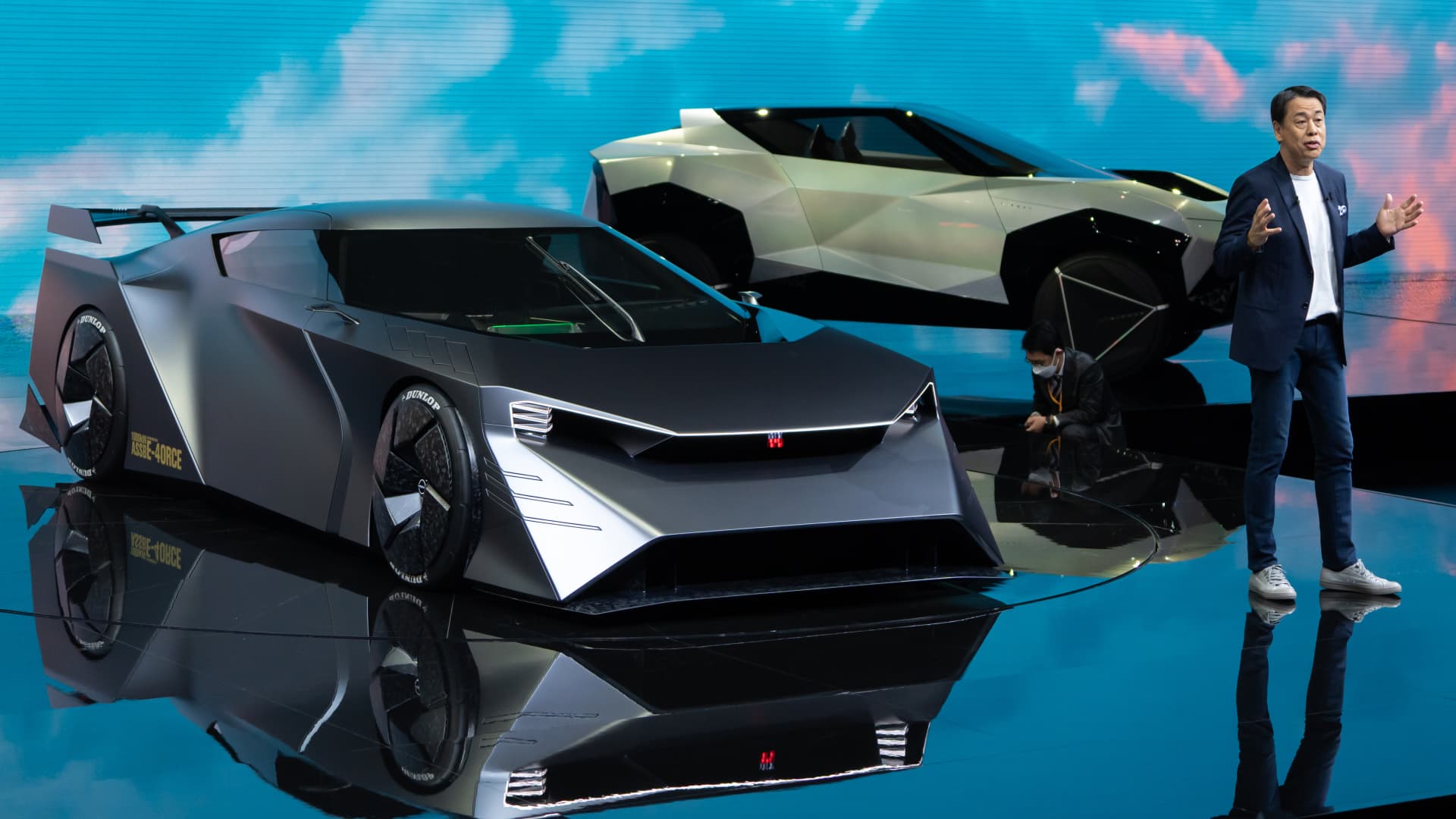Nissan Motor‘s CEO says that when it comes to electric vehicles, the world has changed a lot since Covid – and now, people in different parts of the world want very different things from their battery-powered cars.
That presents a series of challenges to established automakers like Nissan, which have followed global strategies for decades.
Speaking to CNBC’s Martin Soong, Nissan CEO Makoto Uchida said that while more and more customers are stepping up to buy EVs, the pace of adoption varies greatly by market, as do the wants and needs of buyers.
“The world’s pace [of EV adoption] has been changed. The market has been fragmented, and customers’ acceptance speed is also different,” Uchida said. “That means we, as an automotive company, need to be transforming ourselves from the ways of the past.”
Uchida said that differences in government incentives, in costs, in levels of regional competition, and in customer adoption rates have all combined to make the U.S., Europe, Japan and China sharply different markets for electric vehicles.
“So what’s important is how much we can start to localize in each respective market,” Uchida said.
Nissan’s global scale will give it an advantage as it works to lower the costs of EV components like motors and batteries that can be shared among many different types of vehicles, Uchida said.
But many of those new Nissan EVs will no longer be global models. Uchida said that while Nissan has always had regional models to an extent, he believes future Nissan EVs for regions like the U.S. or China must be developed in those regions. That will help ensure that they are aligned with what local customers and regulations are demanding, and that they can be priced appropriately for each market’s expectations, he said.
For instance, EV customers in China are very sensitive to pricing – but they also want the latest technology, which they’ve come to expect from the fierce competition between the many domestic Chinese EV makers. For Nissan, the challenge in China is to compete both with the company’s longtime global rivals like Toyota and Volkswagen while it works to keep pace with homegrown Chinese EV startups like Nio, XPeng, and Li Auto – all while keeping costs as low as possible.
Uchida notes that Nissan’s history in China, and its established customer base, gives it an advantage that some newer entrants might lack — but it will still need to adapt to the extremely fast pace of the country’s EV market, where new models seem to be launched weekly.
“I see the great potential, I still have a lot of customers, all we have to do is accept how the market is moving, how much we can adjust ourselves toward the market,” he said.
Sign up to watch all of CNBC’s Evolve Global Summit exclusively on-demand. Hear how CEOs from Target, FedEx, Kraft Heinz, FanDuel and more are adapting, innovating and transforming in this new era of business. Access now.
Don’t miss these stories from CNBC PRO:
- Bank of America’s investment strategist says the S&P 500 correction could last until it hits this level
- A ‘panic spike’ is possible late October into November, says Bank of America’s chart analyst
- The S&P 500 has entered a correction. Here’s why Warren Buffett likely thinks that’s good news
- Morgan Stanley auto analyst Jonas says investors are ‘waking up’ to idea that Ford, GM are not a way to play EV boom
